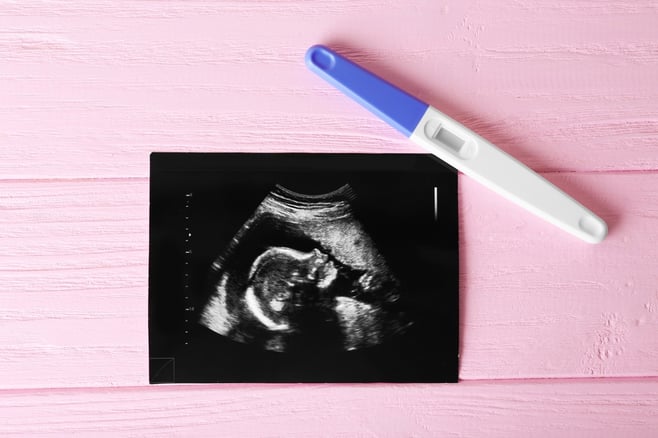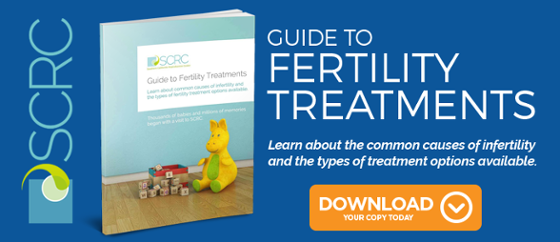
The experience of fertility treatment is often full of uncertainty and anxiety: by the time you undergo treatment you may have spent a long time trying to have a baby, but it’s the last short stretch that’s often the hardest.
The two-weeks wait to discover whether you are pregnant after intrauterine insemination (IUI) can be nerve-racking. Patients often wonder how soon they’ll know whether the IUI worked, what symptoms they should be looking out for, and whether there is anything they can do to help their chances while they wait. Here’s what you need to know about the time after your IUI.
What should I do after IUI?
It’s a common myth that bedrest is necessary to improve the chances of conception after IUI. While it’s common for fertility clinics to have patients lie down for up to 10-15 minutes immediately after the IUI procedure, this isn’t to prevent the sperm from leaking out. The IUI catheter places the sample directly into your uterus so the sperm will stay in place.
Resting for a short period following IUI is a good idea in case you feel a bit crampy or light-headed after the procedure. Undergoing IUI is generally very quick and easy, but in some rare cases women can feel some discomfort or dizziness. Once you leave the treatment room, however, it is safe to resume most of your normal activities. Of course, it’s also okay to take it easy and give yourself the rest of the day off. Even if the procedure is physically easy, it can be emotionally intense.
You should also refrain from strenuous activity (such as high-intensity exercise) after IUI, as is also recommended for IVF. If you have taken fertility medications to stimulate ovulation before the procedure your ovaries may still be slightly enlarged and tender and should be protected, and keeping your internal temperature low may provide a better environment for implantation. Swimming or bathing after IUI in not recommended: you want to reduce the chances of infection which could be introduced through immersion in water.
What should I expect after IUI?
It is very common for women to have some vaginal discharge following IUI. This is normal and nothing to worry about. It is not “leakage” from the IUI but rather cervical mucus which has been dislodged during the procedure.
You may even have some slight spotting, which again, is normal.
Some women experience mild cramping and discomfort in the days after IUI. This does not mean that anything has gone wrong, but it does mean that you should take some extra time to rest and be kind to yourself. You can take over-the-counter painkillers such as acetaminophen to help relieve any cramping. In the unlikely event that you begin to experience severe pain, bloating, or bleeding, contact your doctor immediately: these could be signs of infection or other very rare side effects.
Sex after IUI is allowed and sometimes even encouraged: intercourse and orgasm can cause the uterus to contract, which can help push the sperm towards the fallopian tubes and the egg. Your doctor may advise a short waiting period of up to 48 directly after the procedure, but after that it may be a good idea.
How long does implantation take after IUI?
IUI is carefully timed to ensure that the procedure takes place within hours of ovulation. Sometimes, depending on how regularly and dependably a woman ovulates, IUI may be timed to her natural cycle. In most cases, small doses of fertility drugs are used to stimulate the ovaries and trigger ovulation so that the timing can be controlled.
The “conception clock” starts at the moment of ovulation, because the egg is only viable for fertilization for 12 to 24 hours once a woman has ovulated. The sperm and the egg must meet within this window for fertilization to occur. The next step of pregnancy is for the fertilized egg to implant in the lining of the uterus. This may take anywhere from 3 to 12 days: implantation occurs by the 9th day in 40% of women who become pregnant after ovulation.
Signs of implantation after IUI
The signs of implantation can be subtle and confusing. Some women become pregnant without experiencing any implantation symptoms, and to muddy the water further, these symptoms can be mimicked by early menstruation or even side effects of the IUI procedure itself. This can make the waiting period even more difficult if you find yourself obsessing over every little detail and playing the symptom guessing game. However, it is natural to wonder whether you will feel implantation occurring. These are the most common implantation signs:
- Spotting: When the blastocyst implants, some uterine cells are dislodged from the lining. When you miss your period, these few dislodged cells may sometimes be discharged and appear as slight spotting. Implantation spotting will usually be pinking or light brown rather than bright red as with a period. This is usually a very minimal amount of blood and is easy to miss or confuse with a very light period. If you do experience spotting, there’s also a chance it was caused by the IUI catheter.
- Cramping: This is the most common of all the implantation signs, but is still only reported by 30 to 35% of women who conceive. Slight crampy twinges or a feeling of fullness in the abdomen could be a sign of implantation, it may be a sign of impending menstruation, or it could be caused by the IUI procedure. Some women describe the feeling of implantation cramping as pinching or tingling below the navel, or as slight gas pains.
The only way to be sure whether or not IUI has worked is to take a pregnancy test 14 days after the IUI procedure. Some women opt to take home pregnancy tests earlier than this, which can be somewhat stressful. It is not easy to get a reliable result before 14 days. The trigger shot used to stimulate ovulation can cause false positives for days after the IUI, and tests in the days after can give false negatives, because there has not been enough time for pregnancy hormones to build up to detectable levels in the urine.
This can create a rollercoaster of anxiety at a time where staying as relaxed as possible is important. As much as possible, lean on your support system and practice extra self-care during this time. Try to put off home testing as long as you can: when the two weeks is up, you will return to the clinic for a blood test, which will give you an accurate answer to the question of whether you’re pregnant.
Share this on social media:





